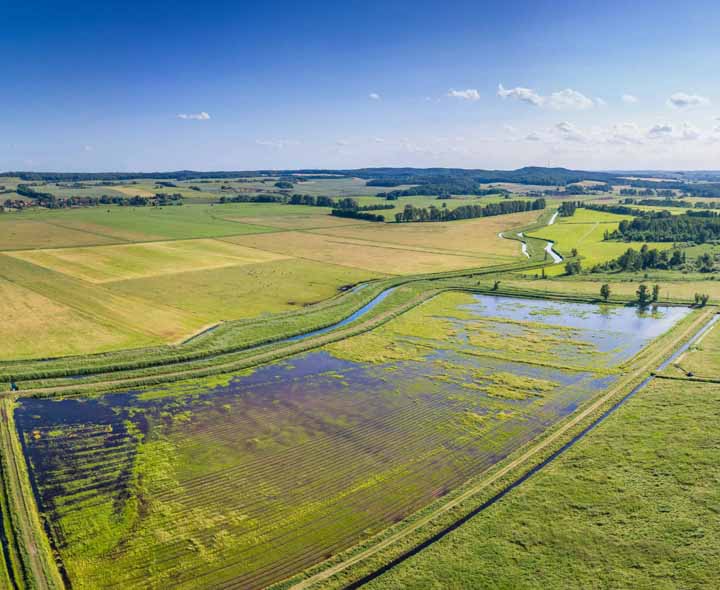Wetland agriculture reduces nitrogen emissions

According to Philipp Gramlich and Karin Bodewits of Stichting Turfvrij, less nitrogen emissions do not mean fewer farmers.
A solution to the high Dutch nitrogen emissions seems further away than ever with the new cabinet. According to the dominant story about this, which BBB used to gain voters, less nitrogen means fewer farm animals and farmers. But is this true? Does reducing nitrogen emissions automatically mean the economic end for many Dutch farmers?
Fortunately, this is an oversimplification. We should not get rid of farmers but of our farming model. Much farming happens on drained peaty grasslands, which leads to enormous greenhouse gas emissions because the peat slowly disappears into the air in the form of CO2. As a result, our country is sinking further and further below sea level.
If we raise the water level in our peat soils, this degradation will stop almost immediately.
This would solve the first problem: the enormous greenhouse gas emissions from farming on drained peat. This is not happening because raising the water level means cows and tractors sink in.
Another model is needed. Fortunately, it already exists: farming on wetlands, also known as paludiculture. Think of rice plantations, but also of growing reed for our roofs. Farmers would have to invest in new equipment, such as lighter tractors with wider tires.
If the government supports them in this transition, the costs are still a fraction of paying them to stop their business altogether.
Many paludiculture projects are currently being started, especially in Germany, but also in the Netherlands. For example, the Dutch sustainable investment platform Corekees financed the German initiative ZukunftMoor to support farmers in this transition. This gives farmers two incomes: from the crop sale and CO2 certificates.
The crop they grow, peat moss, has formed the fossil material peat over the course of millennia. The Netherlands uses a lot of peat in gardens and greenhouses; we are the largest importer in Europe. Peat moss can serve as a replacement for fossil peat, which provides climate benefits.
Mass protests broke out when former minister van der Wal tried to tackle the nitrogen problem by limiting the number of farm animals. This accelerated the rise of BBB. That party now has a firm grip on the Ministry of LVVN. BBB must be interested in the wet agricultural model. It would allow our peat-rich agricultural land to continue contributing to food production and to grow more vegetables in our greenhouses—a new revenue model for farmers.
This article by Karin Bodewits was originally published in Trouw (Opinie: Wetland-cultuur brengt de stikstof omlaag).